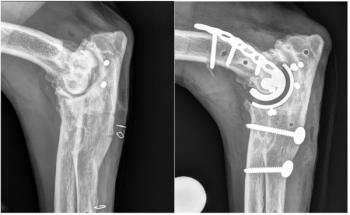
Educating pet owners on animal communication

Natalie Marks, DVM, CVJ, CCFP, Elite FFCP-V, explains how educating pet parents on recognizing stress signs and body language in their pets fosters better patient care
In an interview with dvm360 on her Fetch Kansas City conference lecture, Natalie Marks, DVM, CVJ, CCFP, Elite FFCP-V, emphasized the importance of patients’ emotional health in veterinary care. Marks underlined the importance of recognizing and addressing fear, anxiety, and stress; and discussed strategies for creating a more supportive environment for pets and their owners. She also explained the role veterinarians play in educating pet parents about their companion’s needs and behavior.
Below is a partial transcript:
Natalie Marks, DVM, CVJ, CCFP, Elite FFCP-V: I think just very broadly in general, we as educators—veterinarians and veterinary technicians—it's our job to teach pet parents what stress looks like in our pets. I think it's urban myths all over the internet about what a stressed dog or cat looks like, and the subtle signs, the first signs that we need to notice, are almost always missed. So being able to talk to them about body language and being able to tell them, you know, cats don't want to be messed with when they sleep, like leave them alone and don't follow them when they wake up. That's a cat, and that's what a cat prefers. Don't touch a cat in the belly. Don't grab a cat by its tail. I know this sounds very remedial to a lot of our industry, but there are so many first-time cat parents that came out of COVID. Literally millions of people that have never had a pet in their life and chose a cat, sometimes because they thought a cat was an easier pet as far as husbandry goes, but really not understanding cat enrichment and what a cat likes and doesn't like in the home, and how do we understand through their body language, how they're communicating with us so we can have the most positive human-animal bond.
Newsletter
From exam room tips to practice management insights, get trusted veterinary news delivered straight to your inbox—subscribe to dvm360.






